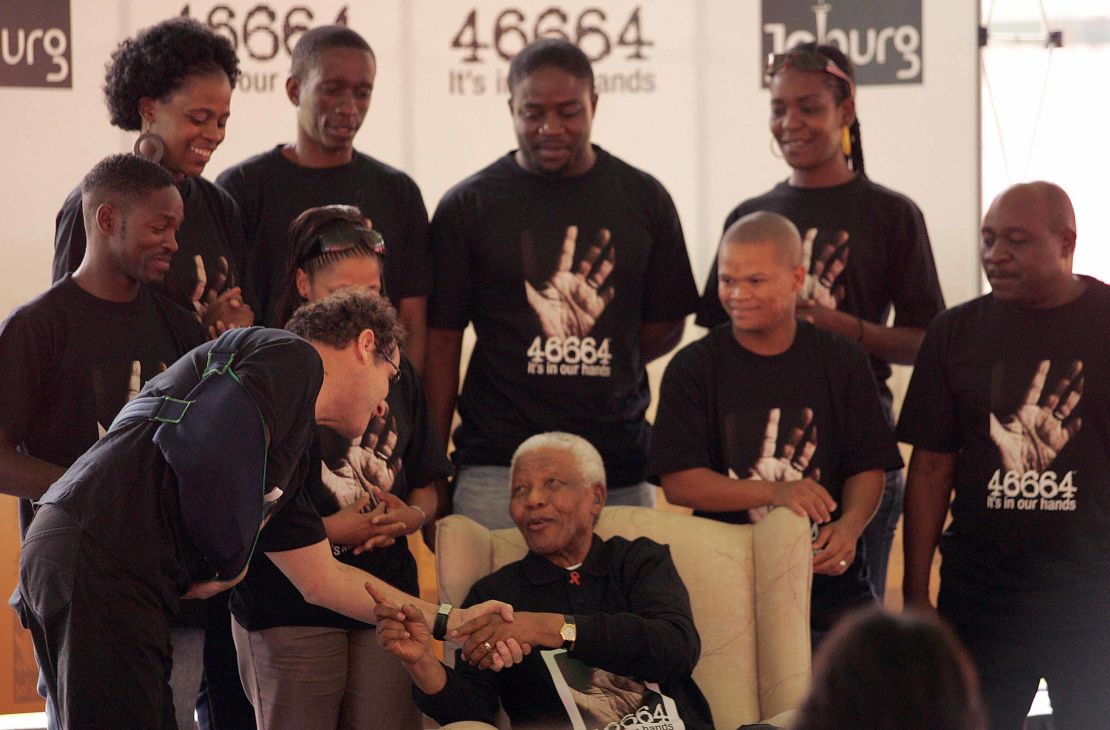Editor’s Note: Raymond Joseph is a journalist who lives in Cape Town, South Africa. The opinions expressed in this commentary are solely his. View more opinion articles on CNN.
I still remember that night back in the early 1970s. It was one of those rare moments at the height of apartheid, when I saw tangible proof that there was hope for a democratic South Africa in which all of us could live together as equals.
The occasion was a concert by Juluka – Zulu for sweat – a rare multiracial band led by singer and social anthropologist Johnny Clegg and his friend Sipho Mchunu, who were closely associated with the mass movement against apartheid.

This memory came flooding back to me on Tuesday after learning of the death of Clegg, 66, from pancreatic cancer. Though diagnosed in 2015, Clegg only went public about his illness in 2018 when he announced a grueling “Final Journey” farewell tour across South Africa and to the United States, France – where he was known as “Le Zoulou Blanc” (“the white Zulu”) – and several other countries.
His death set off a nationwide outpouring of grief that transcended political, cultural and racial divides – last seen when President Nelson Mandela died. Of note, Clegg and Mandela became good friends after the icon’s release from jail. During a concert in France in 1999, Mandela surprised the audience when he came on stage and danced along with Clegg and his band.
Similar to Mandela’s death, Clegg’s passing has also proven a rare moment of unity as the country’s deeply divided political parties mourn one of its favorite sons. Tributes poured in from the governing African National Congress, the official opposition Democratic Alliance and the radical Economic Freedom Fighters.
The South African government and the Nelson Mandela Foundation also paid tribute to him on Twitter, where #JohnnyClegg trended. And thousands of ordinary South Africans called into radio stations to share their personal memories of Clegg and what his music meant to them.

But back to that concert in the 1970s, the significance of which is hard to explain to anyone who never lived through the madness of apartheid. It was at a time when the racist system of governance controlled the lives of millions of South Africans, robbed them of their citizenship and moved them to distant so-called “homelands.”
Consequently, the mixing of races in public was rare and strenuously policed. But like the band onstage, the audience that gathered that night was young and multiracial, drawn together by a rare opportunity to hear Juluka live.
Their music was unique, a blending of Western and Zulu Maskanda and Mbaqanga music, with lyrics that switched between English and Zulu. Because they did not fit into a genre or a single language group, radio play was rare, so the only way to hear the band was live on stage or on LP record.
Because of the lack of airplay, Juluka (later Savuka) took to the road performing in hostels for migrant workers and in halls and other venues in black townships. They often had to skirt the law as they took their music to a growing fan base across South Africa.
In a tribute after Clegg revealed his illness, journalist Marianne Thamm wrote: “Mchunu and Clegg not only created a new hybrid ‘crossover’ sound, mashing up Maskandi with Mbaqanga and folk/rock, but also crafted songs which told stories – of migrant workers, migrant lives, of family life, death, historical battles and ultimately freedom.”
Not surprisingly, he was awarded multiple honors, including the Chevalier des Arts et Lettres (Knight of Arts and Letters) by the French government and the Order of Ikhamanga Silver by the South African government. He was even made an Officer of the Order of the British Empire.
But, in the end, he will be remembered for his music – with songs like “Great Heart,” “Impi,” “Asimbonanga” and the heartrending “Scatterlings of Africa” – and his contribution to social cohesion in a divided South Africa, where he cleared the path for others to follow.
To cite The Daily Maverick headline that topped its moving obituary, “Johnny Clegg: 1953 – forever.”

